NIL
Jay Jacobs on Auburn facilities, NIL pressure and what still sets the Tigers apart


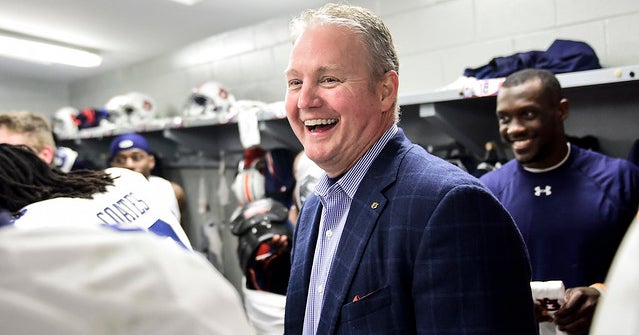
Former Auburn athletic director Jay Jacobs joined The Auburn Undercover Podcast for his biweekly show for a deep dive into how Auburn built some of the SEC’s best facilities—and why staying competitive now requires more than just bricks and mortar.
Jacobs, who led Auburn Athletics from 2005 to 2018, said the evolution of facilities is a story of constant adaptation. “Auburn was the first school in the SEC to have a football building,” he said. “We built that athletic complex in 1989, and at the time nobody else had one. That set the tone for how we’d separate ourselves.”
But in today’s NIL-driven world, Jacobs believes facilities still play a crucial role. “There may be a mindset at some schools that you don’t need to build anymore, just pay NIL and figure it out. But if everyone’s paying NIL, you still need something to separate yourself. That’s where facilities matter.”
Jacobs said recent improvements—from Plainsman Park to Neville Arena—are about more than recruiting athletes. “We’ve all turned our attention to fans. If the fans aren’t there, it’s an empty, hollow place. That atmosphere has to be there for everyone.”
Still, progress isn’t easy. Jacobs recalled pushing for a north end zone project that didn’t gain traction during his tenure. “Obviously I didn’t do a good enough job painting the vision. But thank goodness they’re moving forward with it now.”
When asked about the pressures of NIL, Jacobs didn’t mince words. “I’ve never had a student-athlete demand more money. It’s always been a parent, guardian, or handler. I’ve seen cases where the student-athlete didn’t even know someone was negotiating on their behalf.”
Despite the financial changes in college sports, Jacobs says the Auburn spirit still shines through. “These kids still act like kids. They’re having fun, they’re dancing in the dugout, hanging off the bench. They’re not thinking, ‘How can I get $25,000 more?’ They just love to play.”
Looking ahead, Jacobs acknowledged the challenge of funding athletics once schools begin paying athletes directly as part of the expected House v. NCAA settlement. “Every school is going to have to come up with $20.5 million more, and then it goes up from there. That’s real.”
Yet Jacobs remains optimistic about Auburn’s donor base and approach. “We may not have one mega-donor, but we have a lot of people who care. That’s the Auburn way. Everyone pitches in.”
He closed with a recommendation: a book that’s helped him stay grounded. “It’s called Don’t Give the Enemy a Seat at Your Table by Louie Giglio. Whether you’re a Christian or not, it helps you catch those negative thoughts and think clearly.”
Listen to this episode elsewhere using these links.
NIL
Joey McGuire Compares Oregon to Texas Tech Amid Increased NIL Spending
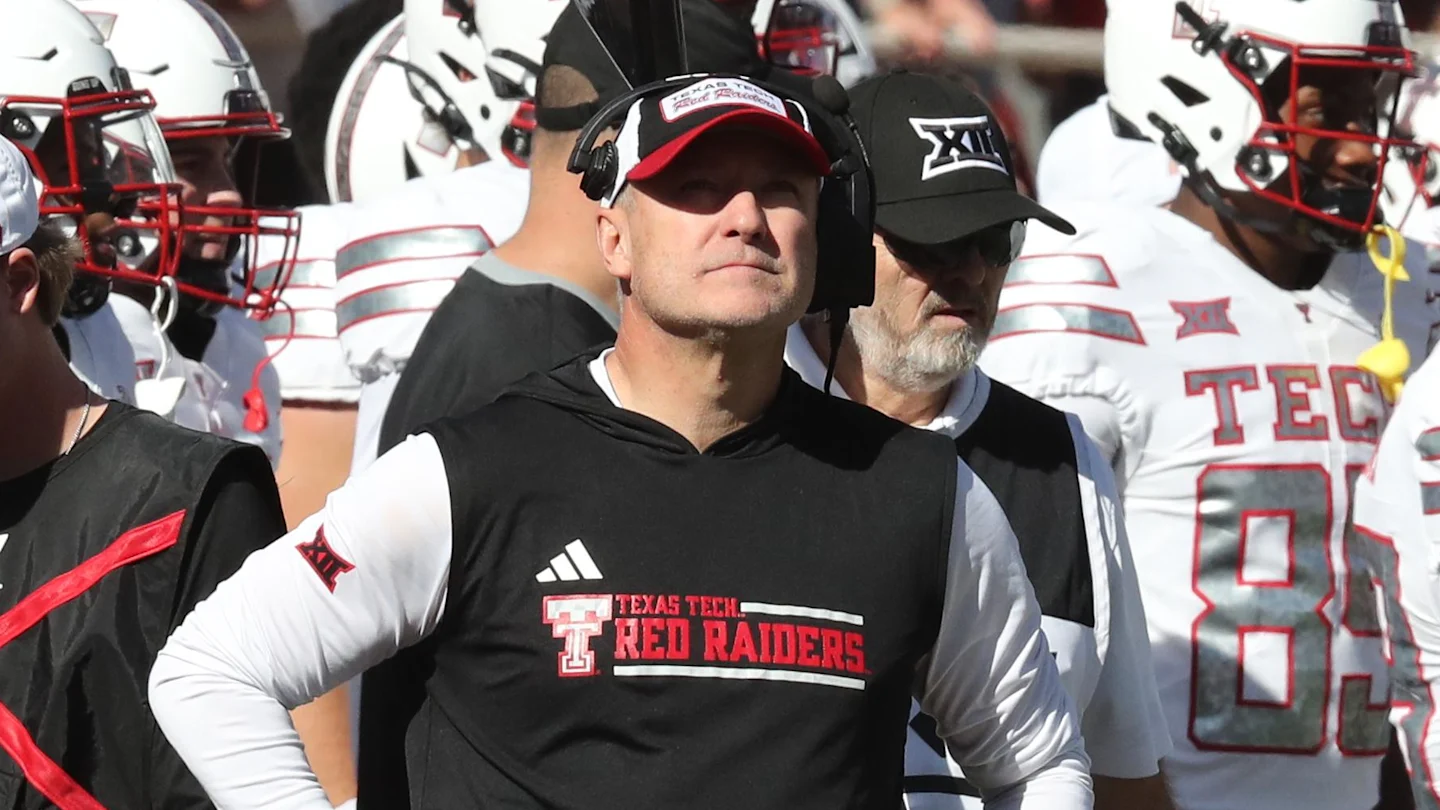
Texas Tech Red Raiders coach Joey McGuire spoke to the media ahead of the Orange Bowl against the Oregon Ducks, and McGuire was quite complimentary of Oregon coach Dan Lanning and the Ducks program. Much has been made about Texas Tech’s increased spending in the name, image, and likeness (NIL) era of college football, and similarities between the Red Raiders and the Ducks have come up ahead of their College Football Playoff matchup.
Powered in part by Nike co-founder and philanthropist Phil Knight, Oregon’s rise in the college football world has been a unique one. On the other hand, Texas Tech’s NIL collective is led by billionaire booster Cody Campbell, whose investment into the Red Raiders program has helped the team climb up the ranks.
What Joey McGuire Said About Oregon and Texas Tech
McGuire was asked to compare Oregon’s rise to Texas Tech’s, and the Red Raiders coach gave a thoughtful answer:
“First, they’ve done a good job of hiring coaches, and Dan (Lanning) was a slam dunk. Second, you know, they made it cool to be an Oregon Duck,” McGuire said. “I mean, they’ve got every uniform known to man, and players love that. So I think we’re really fortunate with Adidas, our partnership with Adidas and Patrick Mahomes, that we’re doing the same thing. We’ve got some some great looks.”

“And then, they have a great booster in Phil Knight that really said, ‘Hey, we’re going to go win at the highest level, and there’s no excuses whenever it comes to finance.’ You know, you turn around, and I think that we’ve shown that we’re doing that, and I think we’re really comparable,” McGuire continued.
“We’ve got guys that have really stepped up and done a great job. I kind of call them the big five whenever you talk about Cody and John and Mike, Dusty, and Gary. I mean, those guys have, along with everybody else in Red Raider Nation, but those guys really led the charge. And so whenever you’re talking, we’re kind of comparable on and off the field in this team. They’ve just done it for a little bit longer and that’s what we’re trying to do,” McGuire continued.

Oregon Ducks’ Sustained Success
As mentioned by McGuire, Oregon has been on the cutting edge of college football uniforms as well as facilities, thanks in part to the program’s relationship with Knight and Nike. In the NIL era, fans often mistake how often Nike is involved in recruiting other than the brand power that Oregon has. Still, Ducks quarterback Dante Moore and wide receiver Dakorien Moore have NIL deals with Nike.
MORE: Oregon Ducks vs. Texas Tech Playoff Betting Odds Make A Clear Statement
MORE: Oregon Loses Two More Players to Transfer Portal Amid College Football Playoff Run
MORE: Dan Lanning’s Frustration Could Ignite Oregon vs. Texas Tech
SIGN UP FOR OUR NEWSLETTER HERE!
Under the leadership of Oregon coach Dan Lanning, Oregon has had success on the recruiting trail and in the transfer portal, bringing in top prospects like Moore and Moore. Other contributors on the Ducks’ current roster came through the portal, including safety Dillon Thieneman, defensive lineman Bear Alexander, and offensive linemen Alex Harkey, Emmanuel Pregnon, and Isaiah World.

While financial stability and resources are paramount in the current era of college football, Lanning has also created a culture at Oregon that is seemingly built to last. After the Ducks’ dominant win over James Madison in the first round of the CFP, Lanning and his team were quick to acknowledge that they can play better.
Oregon and Texas Tech will kickoff from Miami, Florida, in the Orange Bowl at 9 a.m. PT on New Year’s Day.
NIL
65-year-old college football coach surges as candidate to replace Sherrone Moore at Michigan
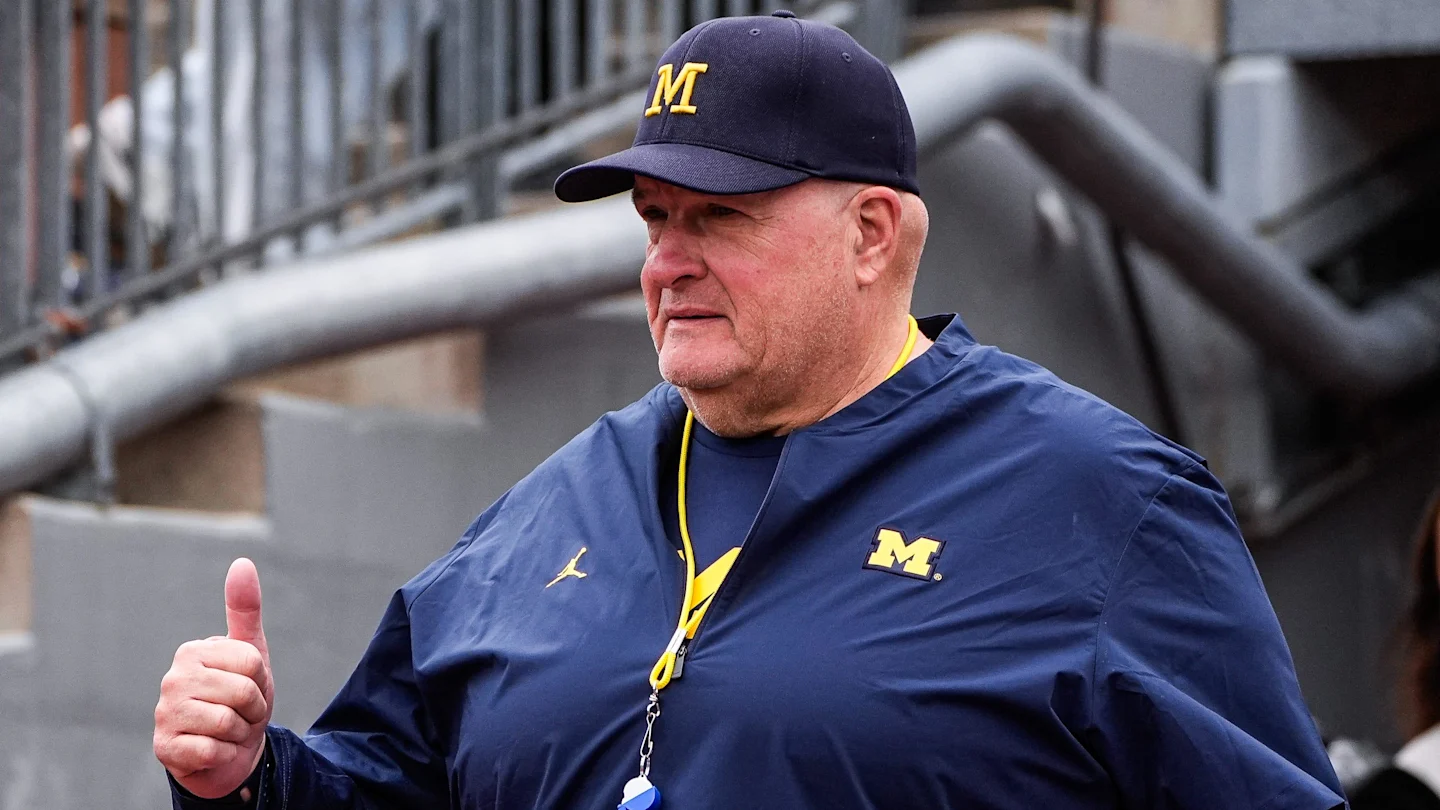
The last of the Power Four college football head coaching openings remains available at Michigan.
The Wolverines decided to part ways with head coach Sherrone Moore on Dec. 10 due to inappropriate relations with a staffer. Michigan had its sights set on Alabama head coach Kalen DeBoer, Arizona State head coach Kenny Dillingham and Washington head coach Jedd Fisch.
Though nothing was made official, Fisch was the first to bow out of the race. Alabama’s College Football Playoff victory over Oklahoma eliminated DeBoer from the conversation, and Dillingham inked an extension with Arizona State on Saturday.
With all of those candidates off the board, one who has emerged in the next round is current Wolverines interim Biff Poggi. The interim said he had been interviewed for the job on multiple occasions this offseason.
Biff Poggi says he’s had multiple interviews for Michigan’s HC position. He also has some blunt words about the program’s shortcomings under Sherrone Moore, calling Michigan a “malfunctioning organization.”
“Everything that happens in this building has to be reevaluated.”
— Austin Meek (@byAustinMeek) December 22, 2025
Poggi began his college football coaching career as an assistant with stops at Brown, Temple and the Citadel in the late 1980s. He coached at his high school alma mater, The Gilman School, as an offensive coordinator and offensive line coach from 1988 to 1995. He spent the next 20 seasons as Gilman’s head coach before returning to the college ranks.
The now 65-year-old spent two prior stints with the Wolverines under Jim Harbaugh. He worked as an analyst with the 2016 team and served as Michigan’s associate head coach in 2021 and 2022.
Poggi was hired away from Michigan to succeed Will Healy as Charlotte’s next head coach in the 2023 offseason. The 49ers were 3-9 in Poggi’s first year at the helm, tying for eleventh place in the American Athletic Conference.
After a 3-7 start to the 2024 season, Charlotte decided to part ways with Poggi. The 49ers hired Tim Albin as his replacement for 2025.
This will not be the first time Poggi has served as the Wolverines’ interim head coach. He was the interim for Michigan’s games against Central Michigan and Nebraska.
The Wolverines accepted an invitation to the Citrus Bowl at Camping World Stadium in Orlando, Florida. No. 18 Michigan (9-3, 7-2) will face No. 13 Texas (9-3, 6-2) on Dec. 31 (3 p.m. EST, ABC).

NIL
Bob Chesney’s Immediate To-Do List at UCLA

Get 50% off a BRO annual subscription!! Join the No. 1 independent source on UCLA sports and recruiting with one of our best offers!! Get unmatched insider Bruin coverage of UCLA football as it begins the Bob Chesney era for the equivalent of 16 cents a day, $1.10 a week, $5 a month and billed at just $60 for the entire year!! There is no promo code required for this offer, just HIT THIS LINK now, and you’ll be good to go!! Offer ends Monday, January 5th at 9 p.m!!
Bob Chesney was hired at UCLA at the beginning of December, with the official announcement released Dec. 6th.
He spent two whirlwind days — Dec. 8th-10th — in Westwood for his introductory press conference and a few other media moments.
He then spent most of his time back in Harrisonburg, Virginia, preparing his James Madison team to face Oregon in the first round of the College Football Playoffs.
On Saturday, the Dukes lost, valiantly, to Oregon, 51–34. That ended the JMU season and Chesney’s coaching tenure there.
And the Bob Chesney era at UCLA begins.
Of course, the coach was doing UCLA-related things for the past three weeks, but now he’ll be fully focused and engaged as UCLA’s new coach.
What to do, what to do?
NIL
Historic college football rivalry ends after schools fail to reach agreement

One of college football’s greatest rivalry games is set to come to an abrupt end as it was about to celebrate its 100th anniversary.
The annual Notre Dame vs. USC football rivalry game is no more after the schools failed to reach an agreement on future matchups, ending one of college football’s most recognizable traditions, according to Yahoo Sports’ Ross Dellenger.
Representatives from both schools had been involved in negotiations to preserve the rivalry over the last several months, but could not agree on terms going forward, at least temporarily ending a football series that had been ongoing since 1926.
Gone, but not for good?
Yes, there is some hope that we could see USC and Notre Dame on the same field in the future.
Administrators from both schools did reach an agreement to resurrect the series as soon as the 2030 season, according to the report.
Until now, just a world war and a global pandemic had prevented Notre Dame and USC from playing each other every season, but now the pressures of the modern college football season, and its postseason format, appear to have played a role.
Whose fault is this?
Concerns about scheduling and how the game would affect College Football Playoff positioning were the decisive factors in bringing an end to the rivalry, according to the report.
Most of that concern seemed to arise from the USC side of the equation, which felt that certain precedents established by the selection committee in punishing teams for losses put the program in a disadvantageous position.
USC hinted this would come
USC head coach Lincoln Riley signaled as much when speaking on the future of the rivalry last year.
“There [have] been a lot of teams that sacrifice rivalry games,” Riley told reporters at Big Ten Media Days last summer.
“As we get into this playoff structure, and if it changes or not, we get into this new conference, we’re going to learn some about this as we go and what the right and best track is to winning a national championship, that’s going to evolve.”
Still, even amid those comments, reps from USC signaled a desire to keep the Notre Dame rivalry, and Fighting Irish head coach Marcus Freeman was adamant on keeping the matchup, too, reflecting the position of his school.
Instead, Notre Dame is poised to finalize a home-and-home series with BYU over the next two seasons that will take the place of USC on its schedule, according to the Yahoo report.
We saw this coming
A recent Sports Illustrated report indicated that USC was hesitant to pledge itself to a long-term agreement with Notre Dame, citing concerns over the future of the College Football Playoff format and the Trojans’ existing schedule and travel demands.
“I want to play USC every year because I think it’s great for college football, that rivalry, USC-Notre Dame,” Marcus Freeman said.
“Before I even got to Notre Dame, everybody watched that game. Everybody remembers moments from that game that just stick out in their mind.”
Another college football tradition bites the dust
Losing a historic rivalry of this pedigree would be another stark reminder of the very strict conditions that schools have to work in in a new environment where playoff selection, and appeasing the College Football Playoff committee, is king.
Known as the greatest intersectional rivalry in college football, USC and Notre Dame have met almost every year since 1926, with World War II and the Covid pandemic being the only exceptions.
Now, to that list of historical anomalies, the very format of modern college football itself could be the decisive factor that puts this great rivalry on the shelf.
(Yahoo)
Read more from College Football HQ
NIL
Oregon Loses Two More Players to Transfer Portal Amid College Football Playoff Run

The Oregon Ducks are coming off of a 51-34 win over the James Madison Duke at Autzen Stadium on Saturday in the first round of the College Football Playoff.
The Ducks now advance to face the No. 4 Texas Tech Red Raiders in the CFP Quarterfinals at the Orange Bowl in Miami, FL. on Jan. 1, but two more members of the Oregon secondary won’t be in attendance.

Per reports from On3’s Hayes Fawcett, Oregon cornerback Sione Laulea is entering the portal and won’t be with the team for the rest of the CFP. Joining him in the portal will be Oregon safety Kingston Lopa, who will have three years of eligibility left. He also won’t be with the Ducks during what hopes to be a run to the National Championship.
Laulea, who arrived to Eugene before the 2024 season, was the top JUCO cornerback prospect out of San Mateo College headed into his first year at Oregon.
Sione Laulea Chose Oregon for Development

He told the media before this season that he chose the Ducks because he thought it was the best fit for him from a developmental standpoint.
“I transferred from junior college, and the biggest fit for me was just development, because I feel like I used two years, so with two years left in eligibility, I feel like I had to make the most out of my two years,” he said. “So the place that was going to develop me the most and where I fit most in the scheme, and I felt like this was a place, especially with the coaching staff, with Tosh (Lupoi) being such an aggressive caller, and (Chris Hampton) as a secondary coach.”
“I feel like it’s been great,” he continued. “As you guys know, there’s not a lot of experience in our back end, specifically the corner room, but there’s some dogs either way, whether we touch the field or not. You can see it clearly in practice that everyone’s making plays on the ball, and it’s pretty much neck and neck.”
MORE: Three Biggest Takeaways From Oregon’s Playoff Win Over James Madison
MORE: Oregon Coach Dan Lanning Is Turning Heads For Ducks’ Playoff Entrance
MORE: National Championship Betting Odds After Oregon’s Win Over James Madison
SIGN UP FOR OUR NEWSLETTER HERE!
However, things never quite worked out for Laulea. He appeared in 10 games with Oregon while posting just 10 total tackles (five solo), three pass breakups and one pick. His only interception as a Duck came in the 38-9 win over No. 20 Illinois last season.
As for Lopa, he arrived to Oregon as a four-star prospect in the 2024 recruiting class out of Grant Union in Sacramento, CA.

He received some notable praise from Oregon head coach Dan Lanning during the spring.
“It’s just what he does every day in practice. You know, the part that we get to see, and Kingston to be an unbelievable player for us. You know, he’s had a really good spring so far. But you know, he earned those moments by what he did in practice,” Lanning said.
Lopa appeared in 13 games this season while posting 12 total tackles and one pass breakup.
NIL
Florida wide receiver Naeshaun Montgomery plans to enter NCAA Transfer Portal

Florida wide receiver Naeshaun Montgomery is planning to enter the NCAA Transfer Portal, On3 has learned. He caught three passes for 26 yards in 2025.
Montgomery played high school football at Miami Central (West Palm Beach, FL), where he was a four-star prospect. He was the No. 262 overall recruit in the 2025 cycle, according to the Rivals Industry Ranking, a weighted algorithm that complies all major recruiting media services.
He had a bunch of different premier programs interested in his services as a recruit. We’ll see who comes calling this time around for the wide receiver.
To keep up with the latest players on the move, check out On3’s Transfer Portal wire. The On3 Transfer Portal Instagram account and Twitter account are excellent resources to stay up to date with the latest moves.
More on Naeshaun Montgomery, NCAA Transfer Portal
Meanwhile, the NCAA Division I Administrative Committee passed dates for the one-time-only college football transfer portal back earlier in October. As it stands, the 2025-26 college football transfer portal will last 15 days. It’ll span Jan. 2 to Jan. 16, the NCAA announced.
Moving forward, the entire Division I football notification of transfer windows is slated for Jan 2-16. As has been the previous standard, athletes on College Football Playoff teams still playing would have 5 days beginning the day after their team’s final game to enter the transfer portal.
Additionally, players have 15 days to enter the portal, but they’re not under a deadline to commit when they enter. Traditionally, the deadline for committing is how late a school can enroll a player through admissions.
One caveat is that if a head coach is fired, the transfer portal will not open for players immediately. The NCAA revealed that moving forward, players will only have 15 days to enter the portal after a coaching change, instead of the former allocation of 30 days. Players will also have to wait five days after a new coach is hired or announced.
Finally, graduate transfers also cannot enter the transfer portal until Jan. 2 with the new one-time-only portal window. All these new guidelines are bound to shake things up, but the transfer portal will still remain as interesting and entertaining as ever.
-

 Motorsports2 weeks ago
Motorsports2 weeks agoSoundGear Named Entitlement Sponsor of Spears CARS Tour Southwest Opener
-

 Rec Sports3 weeks ago
Rec Sports3 weeks agoBlack Bear Revises Recording Policies After Rulebook Language Surfaces via Lever
-

 Motorsports2 weeks ago
Motorsports2 weeks agoDonny Schatz finds new home for 2026, inks full-time deal with CJB Motorsports – InForum
-
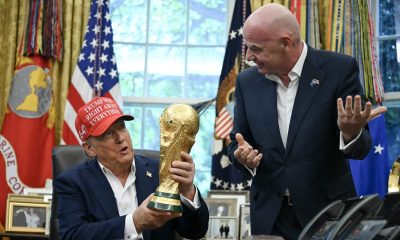
 Rec Sports2 weeks ago
Rec Sports2 weeks agoHow Donald Trump became FIFA’s ‘soccer president’ long before World Cup draw
-
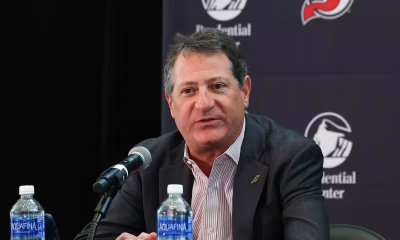
 Rec Sports2 weeks ago
Rec Sports2 weeks agoDavid Blitzer, Harris Blitzer Sports & Entertainment
-

 Motorsports2 weeks ago
Motorsports2 weeks agoJR Motorsports Confirms Death Of NASCAR Veteran Michael Annett At Age 39
-
Sports2 weeks ago
Elliot and Thuotte Highlight Men’s Indoor Track and Field Season Opener
-
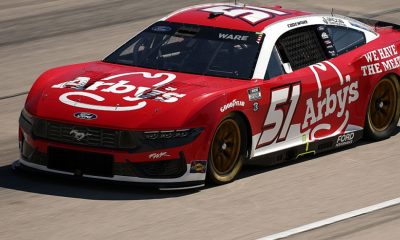
 Motorsports2 weeks ago
Motorsports2 weeks agoRick Ware Racing switching to Chevrolet for 2026
-
Sports2 weeks ago
West Fargo volleyball coach Kelsey Titus resigns after four seasons – InForum
-

 Sports1 week ago
Sports1 week ago#11 Volleyball Practices, Then Meets Media Prior to #2 Kentucky Match

































